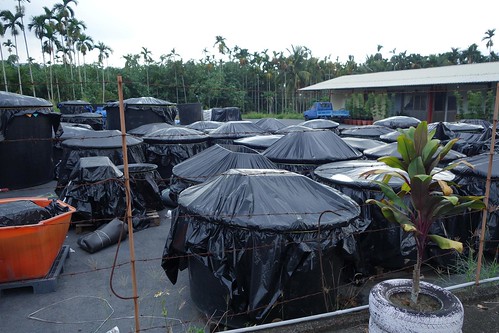If you read one thing today, you need to read this piece by Dennis Engbarth at IPS on the effect of the FEPZs on Taiwan's agriculture and agricultural processing industries: utter destruction.
However, the most controversial segment is a so-called value-added agriculture plan promoted by Council of Agriculture Minister Chen Pao-chi.Smuggling is going to skyrocket. Importing firms will be able to set up an office in an FEPZ, import raw materials, and then ship them out of the FEPZ for processing or sale elsewhere. The obvious function of this program is to help out Chinese producers with value-added sales to Taiwan, help out big processers in Taiwan, gut Taiwan's agriculture and increase dependency on China, and destroy the authenticity of the Made in Taiwan label.
Chen Chi-chung, a professor at the National Chung Hsing University Agricultural Policy Center, stated, “Taiwan may become the first producer of agricultural goods that will permit agricultural produce from all over the world, including China, to be used for processing in its own factories free of tariffs or business taxes.”
Article 42 of the draft special act would fully lift the current ban on import from China of 2,186 types of raw materials, including 830 types of agricultural commodities, while Article 38 would exempt FEPZ enterprises from tariffs, cargo levies and business income taxes. Article 41 would exempt most such commodities from customs or health inspections.
_______________________
[Taiwan] Don't miss the comments below! And check out my blog and its sidebars for events, links to previous posts and picture posts, and scores of links to other Taiwan blogs and forums!

Where does FEPZ stand now, then?
ReplyDeleteEconomically I don't see the big deal with bringing in raw materials tax-free. In fact it could lower prices for Taiwanese consumers and create jobs or people who do the value-added work.
ReplyDeleteThe problems are:
1. in the lack of inspections especially when combined with the "Made in Taiwan" label.
2. the reduction of the ability to feed the nation in a siege situation. It is sensible for any nation to maintain a survival level of self-sufficiency for national survival purposes and undermining the local farmers doesn't help you do that. And Taiwan is the last country that should be failing on this matter.